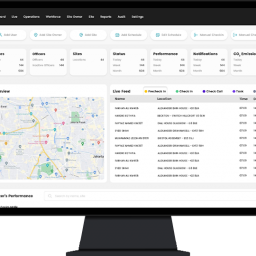Employee Appreciation Day is on Friday, March 3, 2023, and many businesses are thinking about how to honor their employees. While presents and food are always welcomed, this is also a good moment to analyze your organization’s degree of engagement. You can utilize Employee Appreciation Day to conduct an employee engagement survey and determine where you can improve.
Why Survey Employees?
Here’s the lowdown on how a survey might help you demonstrate your appreciation for your staff. Employees that are engaged are the best performers in any firm, but it’s not always clear who is engaged and who is struggling to find their place. Employers are having more difficulty gauging employee engagement and overall happiness because many employees work remotely at least part of the time. An employee engagement survey can provide useful information about the mood and pulse of the workplace.
Disengaged employees, on the other hand, put their companies under pressure. Their lack of effort costs the United States billions of dollars. Low engagement can also have a negative impact on corporate morale, prompting others to become disengaged from their work. Your company may even suffer as a result of low staff retention.
Yet, asking employees directly about their feelings and desires for the workplace may not provide the desired results. Most people will be uncomfortable criticizing their boss directly, making it difficult to gauge how they feel. An anonymous survey that includes the appropriate employee engagement questions is a valuable tool for today’s workplace.
The Best Employee Engagement Survey Questions to Ask
You won’t acquire the information you need to create great changes in the workplace if you don’t ask the correct questions. Be certain that your employee engagement survey covers questions on important issues.
Employee Satisfaction
Consider what a happy employee looks like. They may have a positive attitude, relationships with other members of the team, and a desire to take on new challenges. The following questions can help you determine which employees are satisfied in their employment, as well as ways to improve satisfaction.
- Would you recommend this company as a place to work to your friends and family?
- Do you feel honored to be a part of this organization?
- Are you pleased with your remuneration?
- Do you believe the benefits package offered by the employer is competitive and suits your needs?
- Do you have somebody at work with whom you can discuss or confide?
- Can you see yourself working for this company in two years?
In order to determine who appreciates their jobs, ask questions on current satisfaction as well as the possibility to stay with the company. You can also identify areas for improvement, such as altering employee benefit packages or soliciting additional comments on how to improve the work environment.
Future Focus
It’s critical to understand how employees see their futures with the company. This data can assist firm leaders in determining the team’s long-term success.
- Do you think you’ll still be working for this company in five years?
- Is there a clear path to your career advancement?
- Does the work you do challenge you and help you grow?
- Have you considered leaving this company?
- Do you have the tools you need to execute your duties quickly?
- Does your boss inquire about your career objectives?
- Do you believe you are supported in your professional goals?
Cohesiveness
The cohesion of your team has a significant impact on overall happiness and engagement levels. You can find out how employees feel by inserting questions on how their own goals align with the larger company goals.
- Do the principles and mission of the organisation inspire and encourage you?
- Is your boss interested in your overall success and development?
- Is our company culture helpful and inclusive of all employees?
- Do you regularly receive acknowledgment for your professional achievements?
- Is your work here important to you?
- Have you ever discussed an important initiative with your boss?
- Do you believe this organization’s leadership team is supportive of your professional success?
Open-Ended Questions
The above-mentioned 20 employee engagement survey questions allow for easy “yes” or “no” responses. However, if employees respond “no” to any of these, it is beneficial to ask follow-up questions that allow them to elaborate on their thoughts. These are some examples of open-ended employee engagement survey questions:
- What procedures in our organization do you believe should be changed?
- How can the company’s executives help you be more engaged at work?
- Do you have any concerns about our business culture?
- Is there anything else you’d like to say about your time as an employee of this organisation?
What better approach to express your gratitude to your staff than to give them what they truly desire? Take a company-wide poll to learn how you might make your employees happier. Investing in employee engagement is a win-win situation for any firm, regardless of size.

















